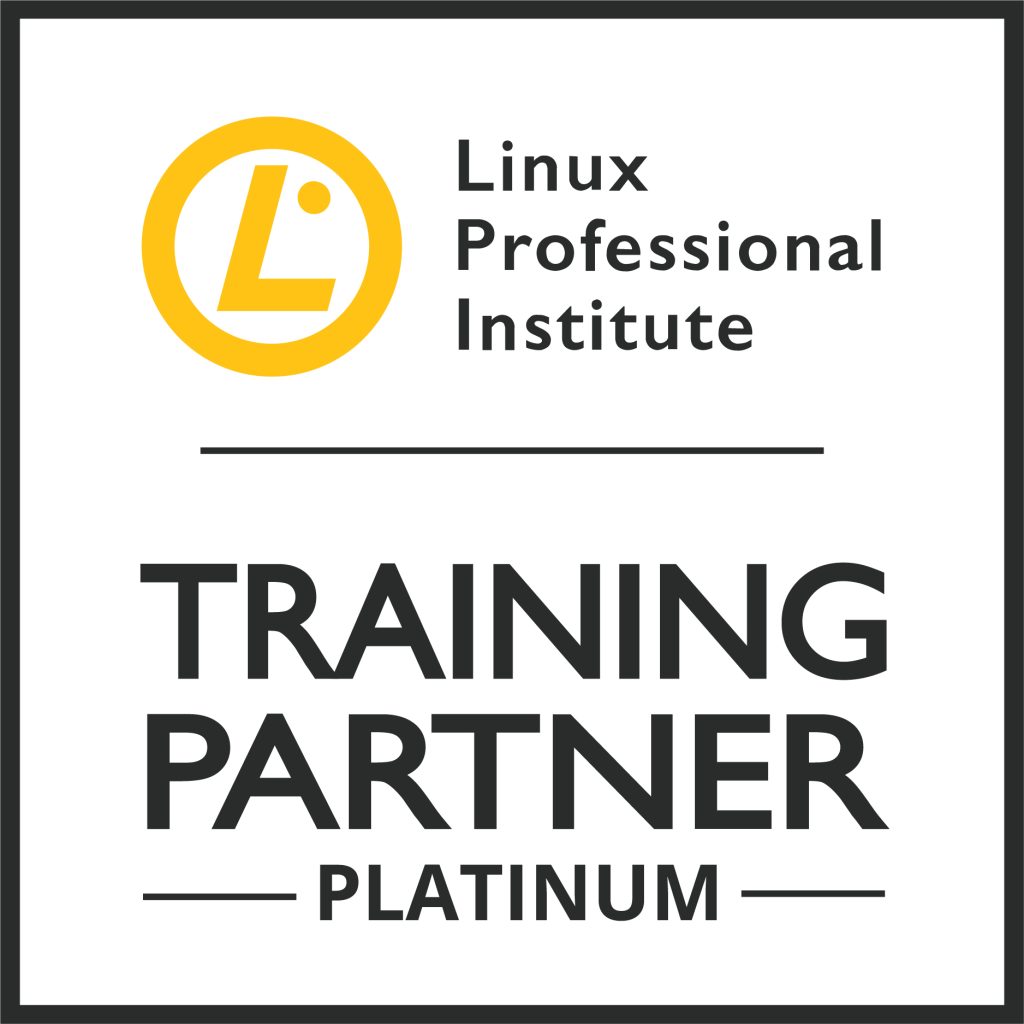category
LPIC-2 Linux Engineer

Type
Virtual
Classroom ILT
Skill Level
Available dates
Learning Path
Virtual
Duration
1 Day

TYPE
Virtual
Classroom ILT
LEARNING PATH
SKILL LEVEL
DURATION
AVAILABLE DATES
Choose date
R9 900,00
Price excluding VAT
Introduction
LPIC-2 is the second certification in LPI’s multi-level professional certification program. The LPIC-2 will validate the candidate’s ability to administer small to medium–sized mixed networks. The candidate must have an active LPIC-1 certification to receive LPIC-2 certification, but the LPIC-1 and LPIC-2 exams may be taken in any order.
In this course students will learn how to plan, implement, keep consistent, secure and troubleshoot a small mixed (Microsoft, Linux) network, including a:
- LAN server (Samba, NFS, DNS, DHCP, client management)
- Internet Gateway (firewall, VPN, SSH, web cache/proxy, mail)
- Internet Server (web server and reverse proxy, FTP server)
Student will also learn about how to advise management on automation and purchases.
Audience profile
- Anyone who is already familiar with Linux and material covered in LPIC-1 Linux Administrator course
- Anyone wishing to prepare for the LPIC-2 201-450 and 202-450 exams
Pre-requisites
Before attending this course, delegates must have:
- Attended the LPIC-1 Linux Administrator or CompTIA Linux+ Powered by LPI courses
Course objectives
To become LPIC-2 certified the candidate must be able to:
- Perform advanced system administration, including common tasks regarding the Linux kernel, system start-up and maintenance;
- Perform advanced Management of block storage and file systems as well as advanced networking and authentication and system security, including firewall and VPN;
- Install and configure fundamental network services, including DHCP, DNS, SSH, Web servers, file servers using FTP, NFS and Samba, email delivery; and
- Supervise assistants and advise management on automation and purchases.
Course content
| Module 1: System Start-up & Advanced System Management | |
|
|
|
|
| Module 2: Linux Kernel Configuration | |
|
|
|
|
|
|
|
|
| Module 3: Basic Filesystem Management | |
|
|
|
|
|
|
| Module 4: Advanced Disk Management | |
|
|
|
|
| Module 5: Networking Configuration | |
|
|
|
|
| Module 6: DNS Server Configuration | |
|
|
|
|
| Module 7: Advanced Network Configuration | |
|
|
|
|
| Module 8: Configuring File Servers | |
|
|
|
|
| Module 9: Configuring Web and E-mail Servers | |
|
|
|
|
|
|
| Module 10: Security | |
|
|
|
|
| Module 11: System Troubleshooting I: Boot and | |
|
|
|
|
| Module 12: System Troubleshooting II: System | |
|
|
|
|
Associated certifications and exam
This course will prepare delegates to write the LPIC-2 exams, 201-450 and 202-450
Successfully passing exams 201-450 and 202-450 will result in the attainment of the LPIC-2 Linux Engineer Certification.
On successful completion of this course students will receive a Torque IT attendance certificate.

Torque IT offers authorized instructor led LPIC training and certification solutions that ensure that attendees gain a solid foundational understanding of Linux. The associated certifications serve to demonstrate that successful candidates possess the Linux skills required for cloud, big data, mobile and network roles that are relevant, and in demand, in the industry today.
Linux adoption continues to rise world-wide as individual users, government entities and industries, ranging from automotive to space exploration, embrace open source technologies. This expansion of open source in enterprise is redefining traditional Information and Communication Technology (ICT) job roles to require more Linux skills.
Whether you are starting your career in Open Source, or looking for advancement, LPIC training and certification will help you stand out to hiring managers or to your management team.
